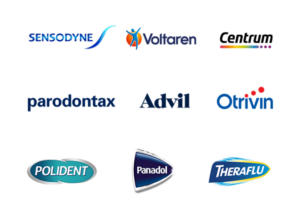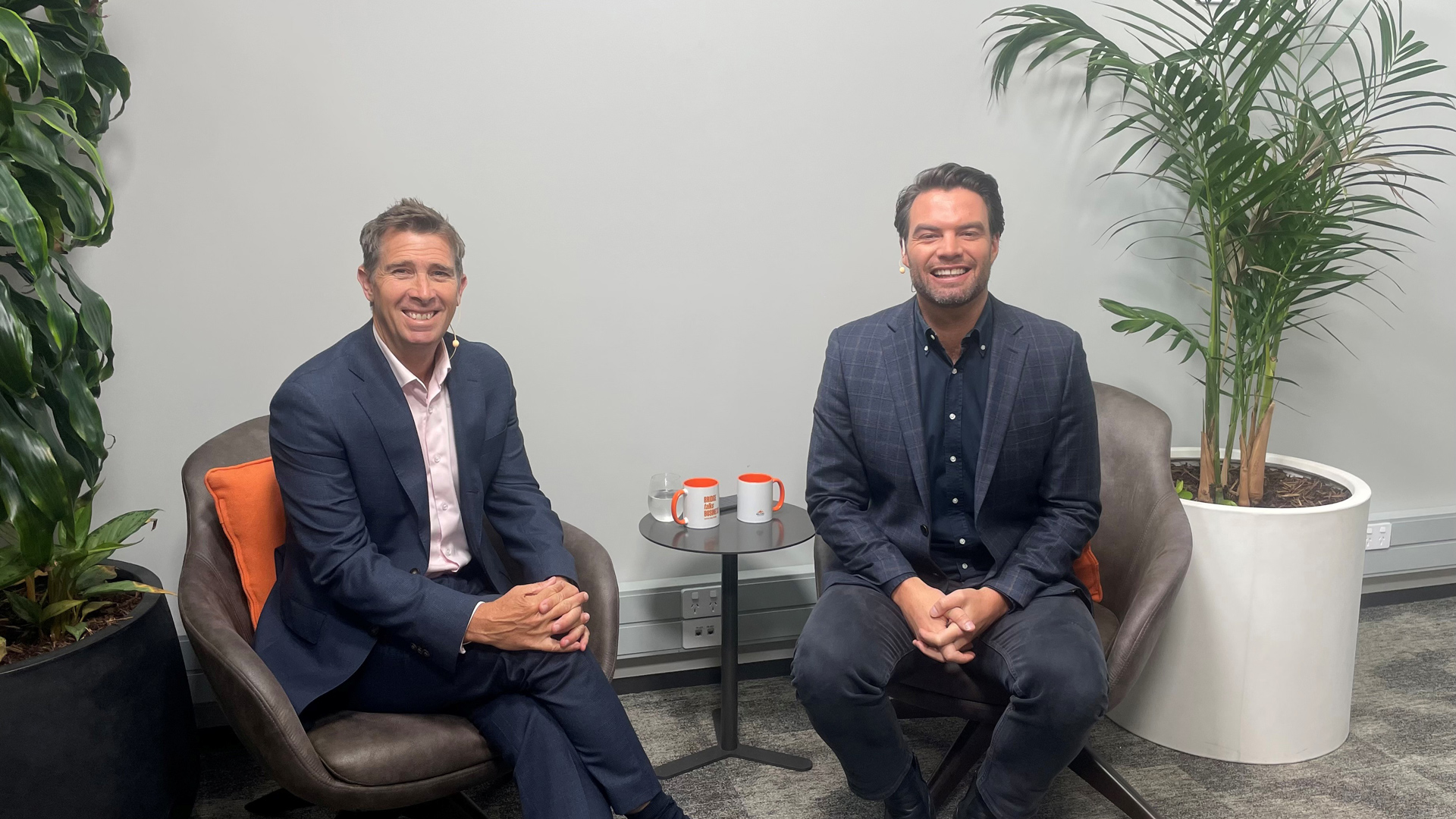Haleon: A Defensive Consumer Health Leader
UK multi-national company Haleon is a global leader in the growing consumer health market, with a portfolio of trusted brands including Panadol, Voltaren, Sensodyne, Otrivin and Centrum.

Haleon’s 9 global “Power Brands”, generating more than 60% of total revenue.
Haleon was originally created through the 2019 merger of the consumer healthcare divisions of pharmaceutical companies GSK and Pfizer. It was then spun out of GSK in 2022 to become a standalone company, allowing Haleon to migrate from its legacy pharmaceutical roots, and become a more efficient and agile consumer company, with capital appropriately allocated to innovation and marketing.
A structurally attractive industry
The US$220bn1 consumer health category includes over-the-counter (OTC) medicines, vitamins, minerals and supplements (VMS), and oral health, and has existed for many decades. Colgate launched its first jar of toothpaste in 1873. In 1940, Miles Laboratories began selling One A Day, the first daily multivitamin, and in 1955, McNeil Laboratories introduced Tylenol Elixir for children.
Demand for Haleon’s products is supported by ageing populations, as well as consumers’ increasing focus on health, wellness, and preventative care. There is still a long runway of unmet consumer needs, for example, Haleon notes that 45% of adults experience tooth sensitivity, but over 60% of them don’t use sensitivity toothpaste2. In emerging markets, the growing middle class is supportive of both penetration and premiumisation of consumer health products. Additionally, pressure on public health systems means governments are generally supportive of OTC alternatives, as consumers pay out-of-pocket, and are able to seek treatment immediately. Research has shown that every $1 spent on OTC medicine saves the US healthcare system $7.33.
Many of Haleon’s brands are trusted household names that have been used by consumers across generations, often when they’re at their most vulnerable, i.e. either suffering themselves or seeing a family member suffer. This creates an emotional connection that is very powerful and can be difficult to break. Brand names often become synonyms for category treatment e.g. asking someone “do you have any Panadol?” when you have a headache, rather than “do you have any paracetamol?”, which is the generic name. This supports repeat purchase, premium pricing, and high margins that allow reinvestment into innovation.
Haleon has a strong moat and benefits from high barriers to entry. This is because the production of consumer health products often requires significant R&D, regulatory approvals, and evidence to back up scientific claims, in order to win the endorsement of healthcare professionals, which is an important aspect of marketing. As a result, smaller competitors, private label players, and new entrants struggle to enter the space so there is less competition relative to other consumer staples categories.
Providing defence in an uncertain environment
Consumer staples companies sell core goods that consumers need and can’t really live without – food, beverages, household products like toilet paper and toothpaste, or provide an essential service, like supermarkets. This makes them more resilient during downturns, which is why investors tend to shift investments towards consumer staples when there is uncertainty in markets.
This has been evident this year with the global consumer staples index up approximately 10% vs the broader global share market, the MSCI World Index, down approximately 5%3.
Consumer health (a sub-category within the consumer staples sector) is even more resilient. While you might trade down from Watties to Woolworths tomato sauce to save a few dollars, you are probably unlikely to risk switching from your “tried and tested” Voltaren anti-inflammatory. As such, the consumer health sub-category can be thought of as the “staple of staples”.
Specifically, with regard to tariffs, Haleon is less exposed relative to other companies. It generates approximately 1/3 of its revenue in the US, but around 80% of those products are produced domestically, and therefore aren’t subject to tariffs. Additionally, high pricing power and margins limit the impact of tariffs on Haleon’s bottom line.
With best-in-class brands, a superior growth profile, industry-leading margins, and healthy cash generation supporting shareholder returns, we view Haleon as an attractive and defensive investment during these volatile times.
___________________________________________________________________________________________________________________________________
1Bloomberg as at 23 April 2025.
2Redburn Atlantic ‘Consumer Health; Pain Gain’ report, 10 April 2025.
3Haleon Oral Health presentation, 7 December 2023.


